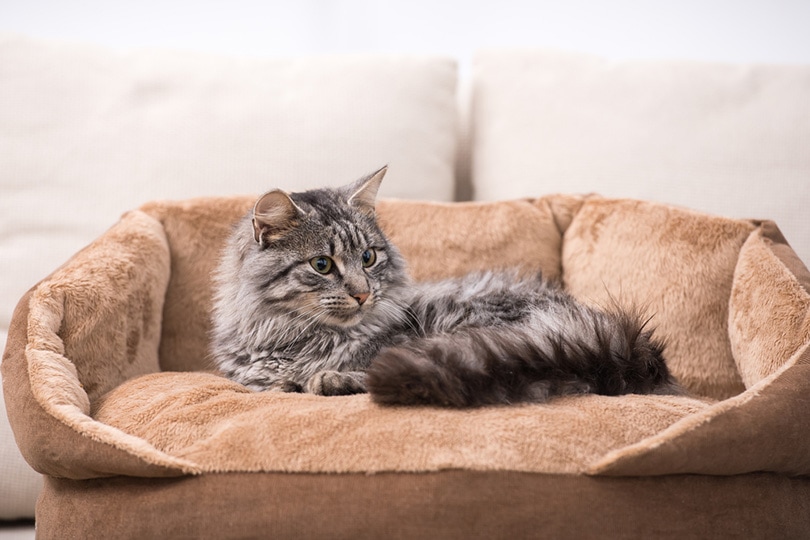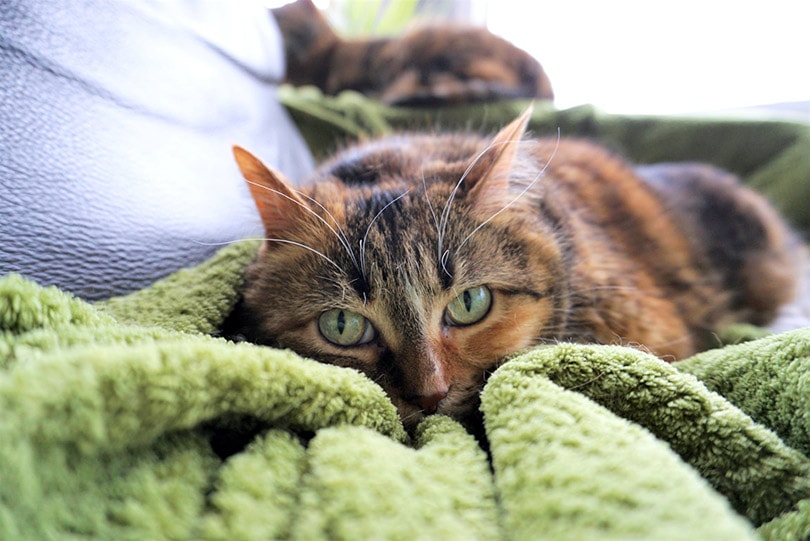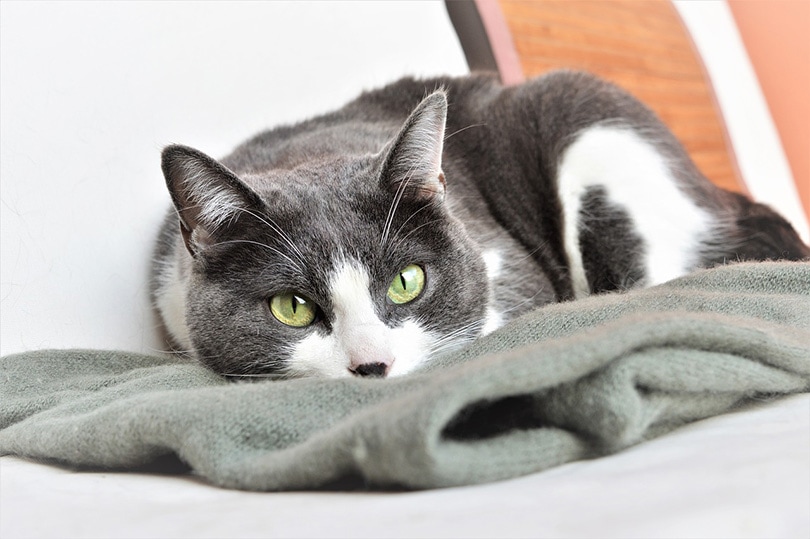
DNA tests are becoming increasingly popular across the board, whether it’s for humans, pets, or any creature in between. It’s very interesting to discover all the information you can gather from these tests.
While DNA test kits are fairly common for humans and dogs, they have recently come available for cats as well. We are going to take a closer look into cat DNA tests, what they offer, their costs, and whether they are worth looking into.
The Cost of Cat DNA Tests
The cost of a DNA test kit for a cat ranges from approximately $45 to $110. There are a few different companies that sell these kits. To choose the right kit, it is recommended that you research the company and the kit itself to ensure the test will be able to give you the information you are wanting to learn about your cat.
The DNA kits that are capable of breed sequencing and providing thorough information about genetic health conditions typically come at a higher cost. You are likely to find the DNA tests that check for intolerances, allergies, and sensitivities in the lower price range.
- Related: How Much DNA Do We Share with Dogs?
How Effective Are Cat DNA Tests?
Since humans have only been producing domesticated cat breeds for less than 200 years, most less than 100. DNA testing for cats does not quite work the same as those for humans or dogs. The genetics are not dated far enough back to determine genetic diversity.
The purebred cats we know, and love today were developed from random pairings and based more on aesthetics than for specific purposes. While the world of purebred cats is ever-evolving, we can still find out some very interesting information about our cats.
What Can We Learn from The Test?
Not all DNA tests are going to have the same capabilities. Below we will cover all the different areas these tests can cover. Once you know what kind of information you want to learn about your cat, you can narrow down the type of DNA test that best suits your needs.

Lineage Information
As mentioned, the breed of a cat is much harder to narrow down due to the difference in domestication. If they are not purchased directly from a breeder, it can be difficult to determine what types of purebred cat yours is mixed with. The majority of pet cats are a mixture of different cat breeds, some of the DNA tests will give you information on lineage and breed sequencing.
Domesticated cats from around the world can be traced back to eight geographic regions including, Western Europe, Egypt, East Mediterranean, Iran and Iraq, the Arabian Sea, India, South Asia, and East Asia. There are cat ancestry tests that will determine if your cat is descended from one or more of these 8 ancestral groups. Once the ancestral origin is determined, comparisons can be completed with 29 breeds to recognize similarities,
Hybrid Status
There are DNA test kits that will be able to tell you what percentage of wild cat DNA your cat has. Wild cat genetics go much farther back than those of domestic purebred cat breeds. After all, domesticated animals were derived from wild animals. Most domesticated cats that are closely related to wild cats are easy to identify due to features and size, but you never know what kind of wild DNA is lurking in your cat’s gene pool.

Genetic Health Conditions and Potential Health Risks
Since genetic testing is becoming more common in cats and other pets, it has become a diagnostic tool for veterinarians. As an owner, you can purchase a cat DNA test kit that can give you insight into the possible genetic health conditions that are specific to your cat. A DNA test can never replace a proper diagnosis from a veterinarian, but having this information is very helpful in being proactive to prevent and also implement treatments for these conditions.
Allergies, Sensitivities, and Intolerances
In addition to genetic health conditions, DNA tests have the capability of recognizing food and environmental allergies, intolerances, and sensitivities your cat may suffer from. These kits can be very helpful in getting to the bottom of these issues and ensuring your cat is fed an appropriate diet and gets proper treatment if it is determined they do in fact, have these kinds of issues.

How They Work
DNA tests work similarly to one another but are dependent on the type of kit you purchase. Most often, you will be required to take a swab from the inside of your cat’s cheek to collect the DNA and will then send it to the company’s laboratory for testing. There are some varieties of DNA kits that utilize hair or blood samples.
The laboratory will analyze the sample once it has been received and the report will be available to you either online or via mail within a few weeks. Make sure you read all instructions thoroughly before you start the process.
Some kits may have certain requirements like ensuring your cat does not eat or drink within a certain period of time or is kept away from other animals for a certain amount of time to avoid any cross-contamination.
Once you have collected the sample properly, follow the steps to package it properly and ship it back to the company. Many companies will offer you to be updated as information advances so that if any new information comes available, you will be notified.

Are They Worth it?
Whether or not a cat DNA test is worth the price is truly up to you. There is a lot of interesting information to be learned about our feline pals and the cost will depend on your level of curiosity as an owner.
These tests do not diagnose your cat with a disease, nor is it able to tell you whether your cat will definitely get or avoid the diseases they have been screened for. They can, however, give you some insight on what to look for.
Since these DNA tests can be used as preventative tools, they are becoming increasingly popular among purebred cat breeders, so it may not be a bad idea if you are considering breeding your cat. Remember that this type of testing does not replace routine veterinary care and proper diagnosis from a medical professional.
- You may also find this interesting: How Accurate Are Cat DNA Tests? What You Need To Know!
Featured Image Credit: Yuriy Seleznev, Shutterstock





